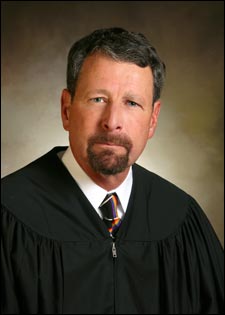Attorneys question sanctions
By: Jack Zemlicka, [email protected]//February 11, 2011//

The Wisconsin Court of Appeals is cracking down on attorneys who improperly certify the completeness of their brief appendices, and legal professionals want to know why.
During the last year, judges have imposed at least 17 sanctions of $150 to $200 on practitioners who didn’t adhere to Wis. Stat. 809.19(2)(a), which requires attorneys to include relevant findings and rulings of the circuit court.
Veteran criminal defense attorney Raymond M. Dall’Osto is among those who have been recently penalized by the court and he questioned the need for the sudden spike.
He was cited last year for a filing a false brief which didn’t include a complete record from the circuit court and slapped with a $150 fine.
“It came out of the blue,” Dall’Osto said. “I tried to comply and would just like the court to tell me what they want.”
He and other appellate practitioners have been taken aback by the recent surge in fines, which were more of a rarity in previous years.
The court established authority to sanction attorneys for improper certifications in State v. Bons, 2007 WI App 132, 301 Wis. 2d 227, but had rarely imposed fines with approximately six in the first two years.
So why the sudden increase?
District III Court of Appeals Judge Michael W. Hoover said he and his colleagues have become more vigilant in assessing fines to those attorneys who egregiously or repetitively run afoul of the statute.
“I think it’s fair to say the general consensus is we have to start sending a message that attorneys cannot file blatantly false certifications,” he said.
Hoover said the court doesn’t want to turn its opinions into “sanction whipping posts,” but when an attorney flat out misstates the truthfulness of his or her certification, judges have to take action, he said.
Situations in which attorneys are filing briefs with factual references that don’t cite the record are becoming far too common, he said.
“Attorneys are not without recourse beyond the printed page,” Hoover said. “If attorneys don’t understand the certification requirements, they have to find out what it means.”
But some argue the court is being too rigid with its interpretation of the statute.

Last month, the Office of the State Public Defender filed a petition for review with the state Sup-reme Court, State ex rel. Office of the State Public Defender v. Wisconsin Court of Appeals, Appeal No. 2010AP387, asking that it review the clarity of the current standards for certification and whether imposition of sanctions is a violation of due process.
The basis for the petition is the appellate court decision issued in State v. Gregory K. Nielsen, Racine County Case No. 08-CF-982, in which the court affirmed Nielsen’s homicide conviction, but also fined the SPD $150 for violation of Wis. Stat. 809.19(2)(a).
In its order, the court stated that the appellant’s appendix included only a select portion of the sentencing court’s pronouncement and excluded that portion where the court discussed relevant aspects of Nielsen’s character.
The court wrote that “by omission of the entirety of the sentencing court’s remarks, the certification is false,” and that “the false certification and omission of essential record documents in the appendix places an unwarranted burden on the court and is grounds for imposition of a penalty.”
First Assistant State Public Defender Joseph E. Ehmann authored the petition for review, which is not challenging the conviction, just the sanction against the SPD.
He declined to discuss the pending matter beyond the contents of the petition, which argues the sanction should be vacated on the grounds that the court did not allow the SPD to show cause and also violated due process rights.
The Court of Appeals has until Feb. 18 to file a response, after which time the state Supreme Court will decide whether to grant review.
The Appellate Practice Section of the State Bar supported the challenge and chair G. Michael Halfenger of Foley & Lardner successfully pitched the Board of Governors to unanimously endorse filing an amicus brief.
Halfenger has avoided sanction and sympathized with judges who deal with incomplete briefs and the administrative headaches they can cause.
But he also questioned whether the solution is more fines.
“There are circumstances where the rule was violated that at least ought to suggest to the court to pause and tell us why we shouldn’t sanction you before we go ahead and do it,” Halfenger said. “I don’t know that is always the case.”
Hoover acknowledged the increase in sanctions, but said the number isn’t excessive. Appellate judges are not advocating monetary punishment in every case, he said.
In many instances, Hoover said, attorneys are proactive in contacting the court with certification questions, to avoid sanction.
“Attorneys are often not bashful about seeking assistance from the court,” Hoover said. “But I think the rule is there for a reason.”
Dall’Osto said his $150 fine was the first time in his 34 years of practice that he’d ever been fined by the appellate court for improper certification. He doesn’t plan to appeal the sanction, he said.
Still, the court should give attorneys notice of the issue, Dall’Osto said, rather than simply incorporating the fine into the order.
“The client sees the word false and wonders what does that mean?” he said. “I don’t care what the court wants, but just tell me.”
Jack Zemlicka can be reached at [email protected].
Legal News
- Wisconsin attorney loses law license, ordered to pay $16K fine
- Former Wisconsin police officer charged with 5 bestiality felony counts
- Judge reject’s Trump’s bid for a new trial in $83.3 million E. Jean Carroll defamation case
- Dozens of deaths reveal risks of injecting sedatives into people restrained by police
- The Latest: Supreme Court arguments conclude in Trump immunity case
- Net neutrality restored as FCC votes to regulate internet providers
- Wisconsin Attorney General asks Congress to expand reproductive health services
- Attorney General Kaul releases update at three-year anniversary of clergy and faith leader abuse initiative
- State Bar leaders remain deeply divided over special purpose trust
- Former Wisconsin college chancellor fired over porn career is fighting to keep his faculty post
- Pecker says he pledged to be Trump campaign’s ‘eyes and ears’ during 2016 race
- A conservative quest to limit diversity programs gains momentum in states
WLJ People
- Power 30 Personal Injury Attorneys – Russell Nicolet
- Power 30 Personal Injury Attorneys – Benjamin Nicolet
- Power 30 Personal Injury Attorneys – Dustin T. Woehl
- Power 30 Personal Injury Attorneys – Katherine Metzger
- Power 30 Personal Injury Attorneys – Joseph Ryan
- Power 30 Personal Injury Attorneys – James M. Ryan
- Power 30 Personal Injury Attorneys – Dana Wachs
- Power 30 Personal Injury Attorneys – Mark L. Thomsen
- Power 30 Personal Injury Attorneys – Matthew Lein
- Power 30 Personal Injury Attorneys – Jeffrey A. Pitman
- Power 30 Personal Injury Attorneys – William Pemberton
- Power 30 Personal Injury Attorneys – Howard S. Sicula











